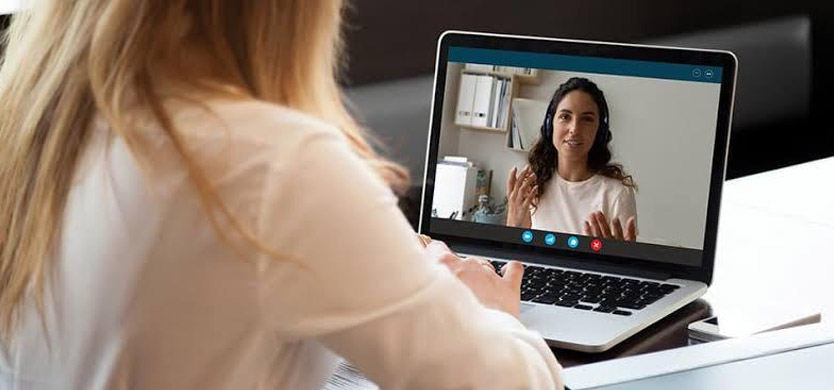
How to make most of the first five minutes of a virtual interview
For job interviews its true to say that 1st impressions count. most employers and recruiters say that within 90 minutes they usually know if they will hire a candidate or not. hence its very important for a candidate to start strong.
From technical issues to the dress code, there are many things to be aware of at the beginning of a video interview. The first few moments determine how well the rest of the interview goes, we share four tips to maximise the first five minutes.
- Prepare ahead of the scheduled interview.
Ensure to test your video tool the day before the interview, and ensure you are set up and ready to go at least 20 minutes before scheduled time and be in a quiet and comfortable place. The last thing you expect is for your interview to be disrupted with technical difficulties, it will reduce your chance of a creating a strong first impression and leave you feeling flustered for the duration.
- Create a strong first impression
In the first few minutes of a video virtual interview, you do not have the luxury to give a firm handshake or make eye contact with your interviewer/recruiter, the best option is for you to smile with confidence and appear interested and engaged. Being in an appropriate setting (quiet and free of distractions) is a must, clothes-wise, you should dress as you would as if you were physically going to the interview, even putting your shoes on if you’re at home can help you to get in the correct mindset. Try to match your dress code to that of the company you are meeting. If in doubt, always lean towards the formal side.
- Be ready for the small talk
With video interviews there always a chance for small talk. The small talk can either have a positive or negative consequence to your interview The brief time lag in a video call can make it challenging to build rapport so, as part of your interview preparation brief and activities, it’s always a good idea to think ahead and rehearse on some likely topics that might come up. The key is to think of some topics where you have a shared interest (e.g. you studied at the same university or are a fan of the same sport) so that you are both able to ask and answer valuable questions and keep the conversation flowing smoothly.
- Be on point from the outset of the interview
Have at least two or three key points that you would want to make about what you have to offer and what you are looking for. Ensure that this are the key points that you would like your interviewer to remember about you after the interview, try to work them in naturally whenever you can, even in the first few minutes.

How to make most of the first five minutes of a virtual interview
For job interviews its true to say that 1st impressions count. most employers and recruiters say that within 90 minutes they usually know if they will hire a candidate or not. hence its very important for a candidate to start strong.
From technical issues to the dress code, there are many things to be aware of at the beginning of a video interview. The first few moments determine how well the rest of the interview goes, we share four tips to maximise the first five minutes.
- Prepare ahead of the scheduled interview.
Ensure to test your video tool the day before the interview, and ensure you are set up and ready to go at least 20 minutes before scheduled time and be in a quiet and comfortable place. The last thing you expect is for your interview to be disrupted with technical difficulties, it will reduce your chance of a creating a strong first impression and leave you feeling flustered for the duration.
- Create a strong first impression
In the first few minutes of a video virtual interview, you do not have the luxury to give a firm handshake or make eye contact with your interviewer/recruiter, the best option is for you to smile with confidence and appear interested and engaged. Being in an appropriate setting (quiet and free of distractions) is a must, clothes-wise, you should dress as you would as if you were physically going to the interview, even putting your shoes on if you’re at home can help you to get in the correct mindset. Try to match your dress code to that of the company you are meeting. If in doubt, always lean towards the formal side.
- Be ready for the small talk
With video interviews there always a chance for small talk. The small talk can either have a positive or negative consequence to your interview The brief time lag in a video call can make it challenging to build rapport so, as part of your interview preparation brief and activities, it’s always a good idea to think ahead and rehearse on some likely topics that might come up. The key is to think of some topics where you have a shared interest (e.g. you studied at the same university or are a fan of the same sport) so that you are both able to ask and answer valuable questions and keep the conversation flowing smoothly.
- Be on point from the outset of the interview
Have at least two or three key points that you would want to make about what you have to offer and what you are looking for. Ensure that this are the key points that you would like your interviewer to remember about you after the interview, try to work them in naturally whenever you can, even in the first few minutes.
